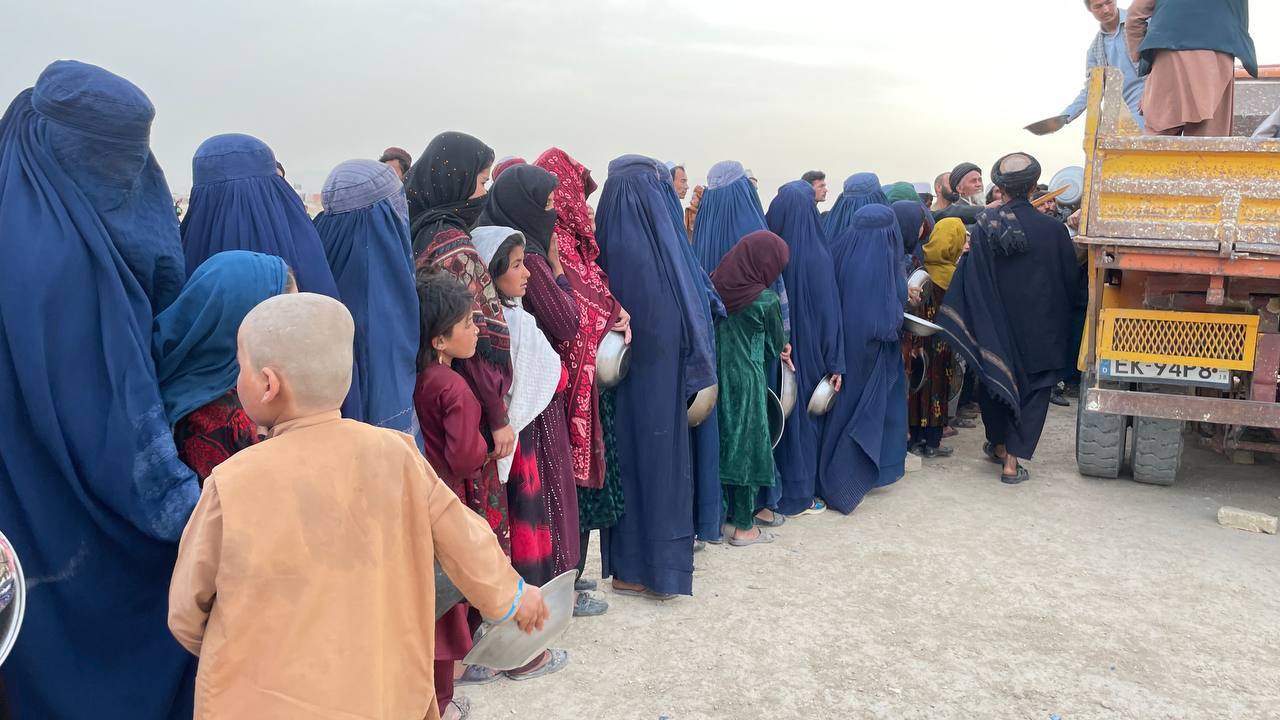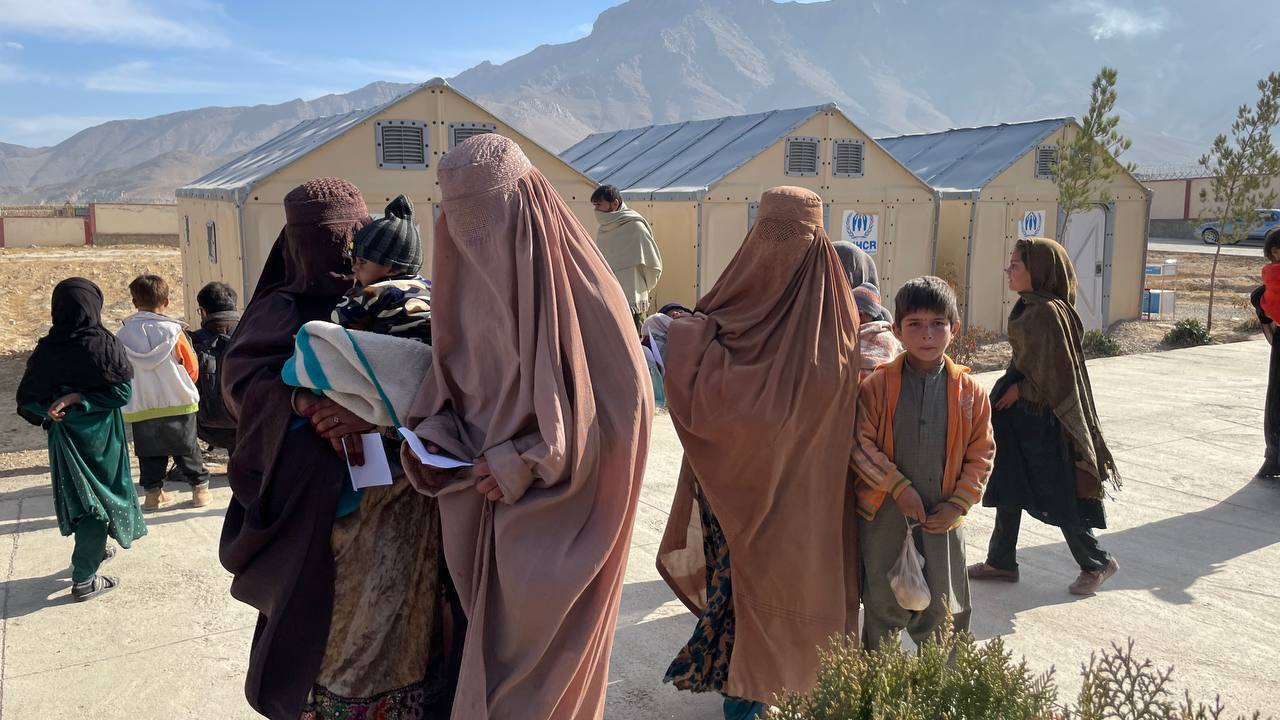All women in Afghanistan are now legally required to cover their faces in public


The past months have seen women's rights regressing around the world, none more so than in Afghanistan.
The world watched in horror last year as the Taliban seized Afghanistan, ending the coalition's 20-year presence in the country and leaving millions of civilians fearing for their rights and lives.
Since its takeover, the Taliban rule has had a particularly devastating impact on Afghan women and girls, restricting their rights and imposing barriers to their daily lives.
Women and girls have been banned from secondary and higher education, segregated in the workplace and as of this week, now legally required to cover their faces in public.

The Taliban regime made the announcement on Saturday, issuing a decree that forbids women from leaving their homes without wearing the burqa.
The controversial measure has been reintroduced from the Taliban's 1995-2001 rule of Afghanistan.
"The crisis for women and girls in Afghanistan is escalating with no end in sight," explained Heather Barr, associate women’s rights director at Human Rights Watch, earlier this year. "Taliban policies have rapidly turned many women and girls into virtual prisoners in their homes, depriving the country of one of its most precious resources, the skills and talents of the female half of the population."
Marie Claire Newsletter
Celebrity news, beauty, fashion advice, and fascinating features, delivered straight to your inbox!
We will continue to update this story.

Jenny Proudfoot is an award-winning journalist, specialising in lifestyle, culture, entertainment, international development and politics. She has worked at Marie Claire UK for seven years, rising from intern to Features Editor and is now the most published Marie Claire writer of all time. She was made a 30 under 30 award-winner last year and named a rising star in journalism by the Professional Publishers Association.
-
 Prince Harry's "proud" words about wife Meghan Markle are going viral
Prince Harry's "proud" words about wife Meghan Markle are going viralBy Jenny Proudfoot
-
 Sources have opened up about Timothée Chalamet and Kylie Jenner's "intense" start to the year
Sources have opened up about Timothée Chalamet and Kylie Jenner's "intense" start to the yearBy Jenny Proudfoot
-
 Two Hollywood actresses were offered the role of Carrie Bradshaw before Sarah Jessica Parker
Two Hollywood actresses were offered the role of Carrie Bradshaw before Sarah Jessica ParkerBy Jenny Proudfoot